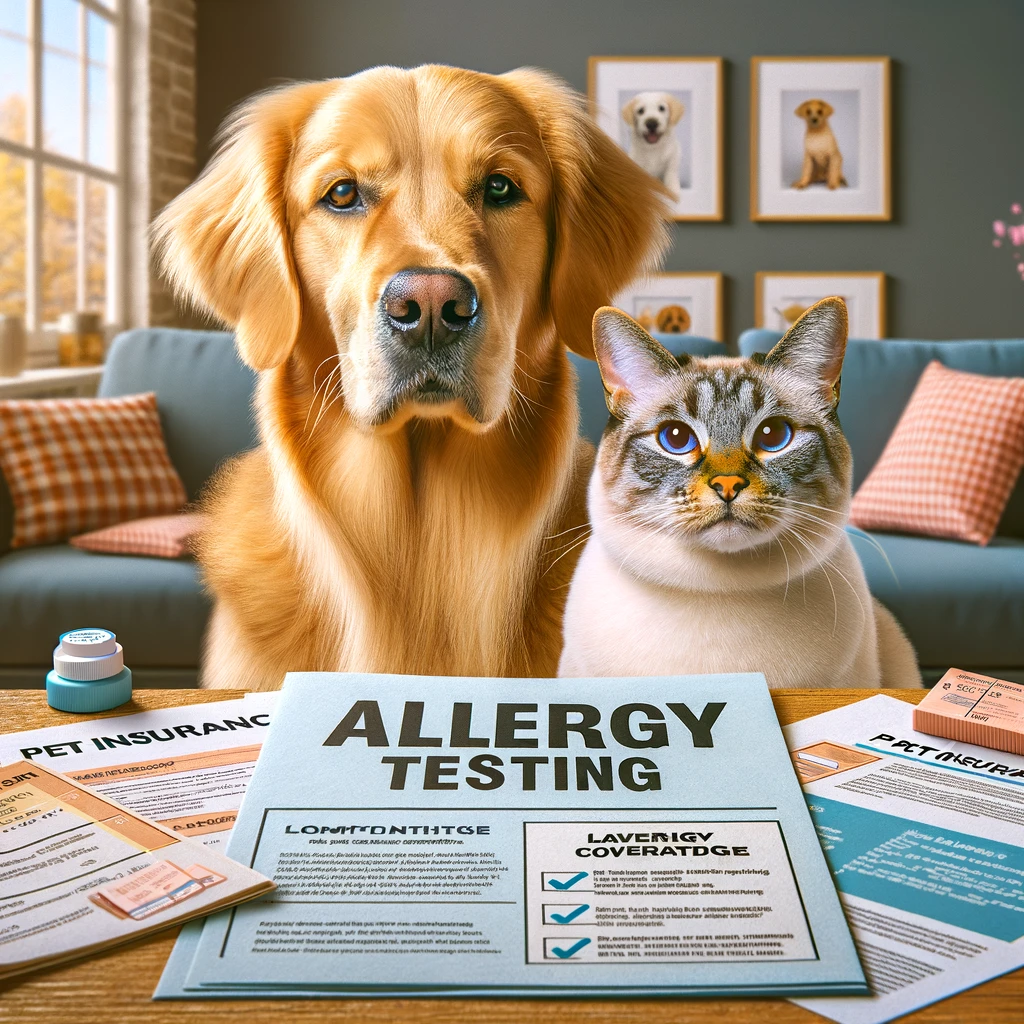What is Allergy Testing in Pets?
Understanding the Basics of Allergy Tests
Allergy testing in pets involves determining the substances to which an animal may be allergic. These tests help pinpoint the exact allergens triggering adverse reactions in pets, such as itching, sneezing, or digestive problems.
Types of Allergy Tests for Pets
Common allergy tests for pets include skin testing, blood tests, and intradermal injections. Skin testing is performed by introducing small amounts of allergens into the skin to observe reactions. Blood tests analyze specific antibodies to identify allergens, while intradermal injections involve injecting allergens under the skin to elicit a response.
Importance of Allergy Testing for Pet Health
Allergy testing is vital for diagnosing allergies accurately in pets, leading to effective treatment plans. Identifying allergens helps pet owners and veterinarians manage allergies proactively, improving the quality of life for pets suffering from allergic conditions.
Does Pet Insurance Cover Allergy Testing?
Exploring Pet Insurance Coverage for Allergy Testing
Pet insurance policies may cover allergy testing, depending on the plan and provider. To determine if allergy testing is included in a pet insurance plan, pet owners should review their policy documents or consult their insurance company.
Factors to Consider When Choosing Pet Insurance for Allergy Testing
When selecting pet insurance coverage for allergy testing, factors such as coverage limits, deductibles, and pre-existing condition clauses should be taken into account. It’s essential to choose a plan that adequately addresses the pet’s health needs.
Cost Considerations for Allergy Testing Coverage
Pet owners should be aware of potential out-of-pocket costs associated with allergy testing, as not all procedures may be fully covered by insurance. Understanding the expenses involved can help pet owners prepare financially for their pet’s allergy testing needs.
How to Address Allergies in Pets with Pet Insurance?
Utilizing Pet Insurance for Allergy Treatment
Pet insurance can help cover the costs of allergy treatments, including medications, allergy shots, and veterinary visits. Having pet insurance in place can ease the financial burden of managing allergies in pets.
Working with Vets and Insurance Companies for Allergy Coverage
Collaboration between veterinarians and insurance companies is crucial for ensuring seamless allergy coverage for pets. Vet clinics can assist pet owners in navigating insurance claims and making the most of their coverage benefits.
Dealing with Pre-existing Conditions and Allergies
Pre-existing conditions, including allergies, may impact pet insurance coverage. Pet owners should disclose any pre-existing conditions when purchasing insurance and inquire about coverage for existing allergies to avoid potential claim denials.
Common Allergies and Symptoms in Pets
Identifying Common Pet Allergens
Common pet allergens include pollen, dust mites, certain foods, and flea saliva. Identifying these allergens through testing is essential for implementing effective allergy management strategies.
Recognizing Symptoms of Pet Allergies
Symptoms of pet allergies may manifest as itching, redness, sneezing, ear infections, or gastrointestinal issues. Monitoring and identifying these symptoms promptly can aid in diagnosing and treating pet allergies effectively.
Flea Allergies and Other Common Allergic Reactions
Flea allergies are prevalent in pets and can cause intense itching and skin irritation. In addition to flea allergies, pets may exhibit allergic reactions to certain foods, environmental factors, or chemicals, highlighting the need for thorough allergy testing.
Choosing the Best Pet Insurance for Allergy Coverage
Factors to Look for in Pet Insurance Plans Covering Allergies
When selecting pet insurance for allergy coverage, pet owners should consider factors such as coverage for diagnostic testing, allergy treatments, and ongoing management. Comprehensive coverage ensures pets receive the necessary care for their allergic conditions.
Reviewing Different Pet Insurance Companies for Allergy Coverage
Researching and comparing pet insurance companies can help pet owners find a policy that meets their pet’s allergy testing and treatment needs. Evaluating customer reviews and coverage options can aid in selecting a reputable insurance provider.
Consulting Veterinarians and Dermatologists for Allergy Testing
Veterinarians and dermatologists play a significant role in diagnosing and managing pet allergies. Consulting with these professionals can lead to tailored allergy testing plans, ensuring accurate diagnosis and effective treatment for pet allergies.
Frequently Asked Questions:
Q: What is the cost of allergy testing for pets, and is it covered by insurance?
A: The cost of allergy testing for pets can vary widely, depending on the type of test and the location. It may range from $200 to $500. Most comprehensive pet insurance plans are likely to cover the cost of allergy testing, especially if deemed necessary by a vet. However, the pet parent should be aware of any waiting period or if the condition is considered pre-existing, as this can affect eligibility for coverage.
Q: Can pet insurance plans cover the treatment for food allergies?
A: Yes, many pet insurance plans do cover treatments for food allergies, as long as they are not pre-existing conditions that are excluded from the policy. This can include the costs associated with special dietary needs prescribed by a vet. Owners should look closely at their policy details to understand what is considered eligible for coverage.
Q: What are the common symptoms of allergies in pets, and how are they diagnosed?
A: Common symptoms of allergies in pets include itchy skin, sneezing, constant licking, and sometimes digestive issues. A vet may perform intradermal skin testing or take a blood sample to accurately diagnose the allergy. It’s crucial for pet parents to describe all symptoms their pet exhibits to help with diagnosis.
Q: What is intradermal skin testing, and will my insurance cover it?
A: Intradermal skin testing involves injecting small amounts of allergens into the pet’s skin to observe reactions, helping identify specific allergies. This type of testing is often covered by pet insurance policies, particularly if recommended by a veterinarian and if the pet is not under any waiting period for eligibility.
Q: Can pet insurance policies help with the cost of allergy shots for dogs prone to allergies?
A: Yes, if your dog is prone to allergies and requires allergy shots (immunotherapy), many comprehensive pet insurance policies will cover the allergy shots cost. As always, review your policy details or speak with your insurance provider to confirm coverage, especially since allergy shots are typically a long-term treatment plan.
Q: Are certain breeds of dogs and cats more likely to be covered for allergy testing due to being more prone to allergies?
A: While certain breeds of dogs and cats may be more susceptible to allergies, pet insurance policies generally do not discriminate coverage based on breed. However, being prone to allergies does not automatically qualify a pet for coverage. The coverage would depend on the individual policy terms and whether the condition is considered pre-existing.
Q: What should a pet parent do if they suspect their dog’s itchy skin is due to allergies?
A: If a pet parent suspects their dog’s itchy skin is due to allergies, they should consult a veterinarian promptly. The vet may recommend allergy testing, such as intradermal skin testing or specific blood tests, to identify the cause of the itchiness. If the pet is insured, the parent should also check with their insurance provider to understand the specifics of their coverage for such conditions.
Q: Do pet insurance plans cover visits to a veterinary dermatologist for chronic condition management?
A: Many pet insurance plans do cover visits to specialists, including a veterinary dermatologist, for the management of chronic conditions, which can include allergy-related issues. Coverage is typically subject to the terms of the policy, including any deductible, copay, or coinsurance, as well as any limits on specialist care.
Conclusion:
Allergies can significantly impact our furry companions, causing discomfort and hindering their overall well-being. Fortunately, allergy testing empowers pet owners to identify the specific triggers, paving the way for targeted treatment plans. While pet insurance coverage for allergy testing varies across providers, having a comprehensive plan can significantly ease the financial burden associated with diagnosis and management.
Key Takeaways:
- Allergy testing helps identify the specific allergens triggering reactions in pets, leading to effective treatment plans.
- Pet insurance may cover allergy testing, but coverage varies depending on the plan and provider.
- Consider factors like coverage limits, deductibles, and pre-existing conditions when choosing pet insurance for allergy testing.
- Pet insurance can help with the cost of allergy treatments and management, easing the financial burden on pet owners.
People Also Asked:
- Cost of allergy testing and insurance coverage: Varies, but comprehensive plans likely cover testing if recommended by a vet, excluding pre-existing conditions.
- Food allergy treatment coverage: Many plans cover treatment for non-pre-existing food allergies, including special diets.
- Common allergy symptoms and diagnosis: Itchiness, sneezing, licking, digestive issues; diagnosed via intradermal skin test or blood test.
- Intradermal skin testing coverage: Often covered if recommended by a vet and not during a waiting period.
- Allergy shots and insurance coverage: Many comprehensive plans cover allergy shots, but confirm details with your provider as this is typically a long-term treatment.
- Breed and allergy testing coverage: Pet insurance generally doesn’t discriminate based on breed, but pre-existing conditions still affect coverage.
- Suspecting pet allergies: Consult a vet promptly, and if insured, check your policy for allergy testing coverage specifics.
- Specialist visits for chronic allergy management: Many plans cover visits to veterinary dermatologists, subject to policy terms and limits.
From initial testing costs to ongoing allergy treatments, pet insurance can offer valuable support. By understanding pet insurance options, consulting veterinarians, and exploring alternative solutions, when necessary, pet owners can ensure their furry family members receive the necessary care to live a happy and healthy life, even with allergies. Remember, knowledge and preparation are key, allowing you to navigate potential allergy challenges and prioritize your pet’s well-being.

